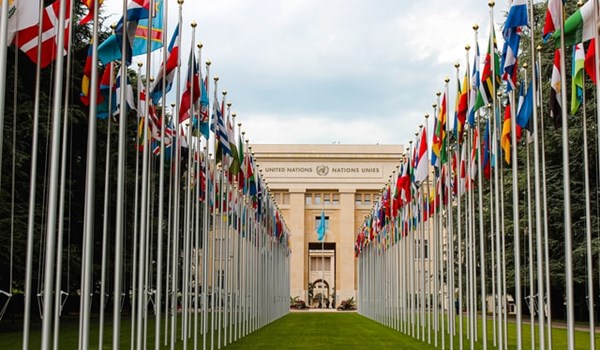Jurisdictions
Regions
Industry Sectors
14/08/23
REGULATION: A U.N. Plan To Stop Corporate Tax Abuse

As published on: theintercept.com, Monday 14 August, 2023.
Hey, let's debate international tax policy! The United Nations has released an advance version of a report from Secretary-General António Guterres titled “Promotion of Inclusive and Effective International Tax Cooperation at the United Nations,” which explicitly criticizes the Organization for Economic Co-operation and Development’s proposed base erosion and profit shifting 2.0 reforms, which in turn obviously means that zzxzxvcaspppmmmdzzzzzzzzzz.
This is the problem with talking about taxes, especially taxes on international corporations. In a famous essay 100 years ago, H.L. Mencken argued that the subject of taxation should be “eternally lively; it concerns nine-tenths of us more directly than either smallpox or golf, and has just as much drama in it.” After all, with the possible exception of sex, there’s nothing that mesmerizes human beings more than money and who’s getting how much.
Yet somehow, as Mencken said, taxation and related topics remain “swathed in dullness.” It’s hard not to believe this dreary fog is generated on purpose. As John Oliver has said, “If you want to do something evil, hide it in something boring.”
The evil goal in this situation is various forms of international tax abuse, an umbrella term that covers both tax evasion and tax avoidance. In theory, these two things are different. Tax evasion is carried out largely by various terrible outlaw oligarchs and is against the law. By contrast, tax avoidance is conducted by the world’s most prestigious corporations and is totally legal, because the tax avoiders write the tax laws.
In practice, the line between tax evasion and tax avoidance is murky and shifting. The Tax Justice Network, which aims to shut down international tax abuse of all kinds, estimates that between them, the two practices will allow corporations and the superwealthy to underpay their taxes over the next 10 years by $5 trillion. A large majority of this will be thanks to the “legal” corporate tax avoidance.
That’s a lot of money, and it can purchase a lot of boredom, as illustrated by the fact that only 14 people will ever click on this article. But you happy 14 should know that this issue is fascinating and actually fairly simple — and the fixes are straightforward, even if they’re politically difficult. The significance of the new United Nations report is that it demonstrates real progress is beginning to be made.
The overall problem is easy to understand. It’s caused by the fact that 1) people and corporations don’t like paying taxes and 2) countries like collecting taxes. This dynamic creates a natural downward pressure on tax rates.
For their part, multinational corporations will claim that the most profitable subsidiaries of the company are located in countries with low tax rates. This has been an especially popular strategy for tech and pharmaceutical companies. Much of their value lies in their intellectual property, which is much easier than, say, factories to “relocate” to Ireland.
Meanwhile, nations like Ireland or Bermuda are happy to essentially steal tax revenue from other countries by offering tax rates to businesses that are far lower than in the countries where the companies do much of their production or sell their products. The current official corporate tax rate in Ireland is 12.5 percent. The top official corporate tax rate in the U.S. used to be 35 percent, and the effective rate — i.e., what companies actually paid — was 30 percent as recently as 2000. The official rate was lowered to 21 percent in 2017 by the Tax Cuts and Jobs Act, and the effective rate is now about 15 percent. One of the arguments for the TCJA was that America had to compete with places like Ireland.
The key solution to this problem is an international agreement to set up a unitary tax system. Right now, the profits that a multinational company earns are attributed by the company to various subsidiaries (with the strong incentive to set up high-profit, largely bogus subsidiaries in low-tax countries). Under a unitary tax, all the company’s profits would be attributed to the company overall. Then the profits would be considered “earned” in different locations based on a straightforward formula, probably based on the number of workers and sales in each country. If half the business activity of, say, Apple, occurred in the U.S., the U.S. would have the right to levy taxes on 50 percent of Apple’s profits.
The Organization for Economic Co-operation and Development has purportedly been working on international tax reform for a decade. And indeed, it has made some forward progress. But the OECD consists of 38 countries that are largely the world’s richest, with the richest and most powerful corporations. It was always unrealistic to expect these governments to get together and crack down on their most important constituents.
The significance of the new U.N. report is that it was put together in a process that included much of the world, including countries that do genuinely want to limit corporate malfeasance and prevent their wealthiest citizens from spiriting their money across their borders.
The report from Guterres calls for the General Assembly this fall to consider “a legally binding multilateral instrument [that] would establish an overall system of international tax governance [and] would outline the core tenets of future international tax cooperation.”
That’s the key: Countries are realizing that rather than competing against each other to raise a small amount of total revenue from big corporations, they should cooperate and raise substantially more. The only losers would be tax havens and shady billionaires. It’s an extremely non-boring battle of Lilliputians versus a huge Gulliver, and the Lilliputians can win if they manage to stay interested.



